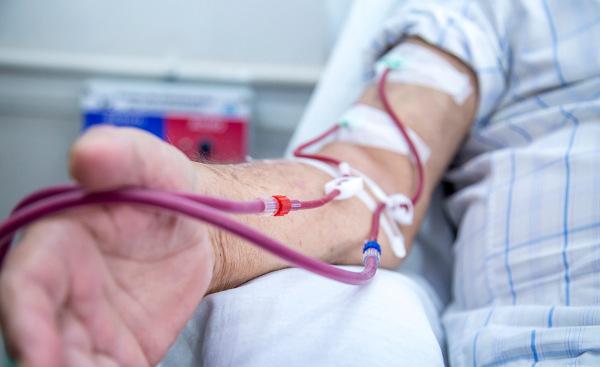When the subject is organ donation, many doubts still persist, especially with regard to the donation made by a deceased donor. Given the importance of the topic, we separated some myths and truths about organ donation that will help you to better understand the donation process and understand the importance of this act.
Read more: Organs that can be donated while alive - what the law says
Myths and Truths About Organ Donation
1. In order for my organs to be donated after my death, I must leave a document registered in the registry expressing my wishes.
MYTH: It is not necessary to leave any document expressing the desire to donate the organs themselves. For donation, only the consent of your family is required, therefore, the will must be expressed to your relatives, so that they, at the right time, authorize the donation.
2. A single donor can save up to 10 lives.
TRUTH: When we die, various organs can be donated and thus help people in need. A single person can, by donating organs and tissues, help at least 10 people to improve their quality of life or even ensure their survival.
Read too: Blood donation - who can or cannot donate, screening steps
4. Doctors can confuse brain death with coma and remove a person's organs without the person actually being dead.
MYTH: O with the and the brain death they are two very different situations that are well recognized by the medical teams. In order for brain death to be declared, it is important that several criteria are followed and that brain inactivity is also proven by examinations. The assessment is carried out by two different physicians, and each assessment is done at least six hours apart. Brain death differs from coma, as in the latter situation brain activity is observed.

4. After organ donation from a deceased donor, the body cannot be taken care of, as the individual is left with deformities.
MYTH: The organ donor's body is completely prepared after the donation so that it can be returned without deformities to their relatives. It is noteworthy that it is considered a crime, by Law no. 9434, of February 4, 1997, failing to recompose the corpse, returning it to a dignified appearance, for burial or failing to deliver or delay its delivery to family members or interested parties.
Do not stop now... There's more after the advertising ;)
5. It is not possible to choose the donor in the case of organ donation after death.
TRUTH: In living donation, the donor can choose to whom his organ will be donated, however, when the donation occurs after death, organs will be donated to recipients who wait on a single waiting list. It is worth noting that, in life, you can make a donation to a family member up to the fourth degree or your spouse. The donation to people without these bonds will depend on judicial authorization.
7. If you don't want to donate my organs, I can sell them to whoever needs them.
MYTH: The purchase and sale of organs is prohibited by law in our country. According to Law no. 9434, of February 4, 1997, it is a crime to buy or sell fabrics, organs or parts of the human body. The penalty is imprisonment, from three to eight years, and a fine, from 200 to 360-day fine. Also according to the law, anyone who promotes, mediates, facilitates or gains any advantage from the transaction incurs the same penalty.
Read too: Bone marrow donation - what it is and how it is done
7. Elderly people can also donate organs.
TRUTH: Elderly people can also donate organs. What determines whether or not a person can donate an organ is their health and not their age. Therefore, there is no age limit to donate.

8. Richer people who are on the transplant waiting list get the organs first.
MYTH: In Brazil, we have a single waiting list, in which people who need organs and tissues are registered. The patient's position on the list is determined, among other criteria, by the urgency of the transplant and how long a person waits for that organ. The financial condition in these cases is not evaluated.
9. The donor's family will have no cost of donation.
TRUTH: Organ donation does not generate costs for the donor's family. It is worth noting that the family will also not receive any type of payment for the donation.
10. Persons without identification immediately become organ donors.
MYTH: According to Law no. 9434, of February 4, 1997, removal is prohibited post mortem of tissues, organs or parts of the body of unidentified people.
By Vanessa Sardinha dos Santos
Biology teacher
Would you like to reference this text in a school or academic work? Look:
SANTOS, Vanessa Sardinha dos. "10 Myths and Truths About Organ Donation"; Brazil School. Available in: https://brasilescola.uol.com.br/biologia/10-mitos-e-verdades-sobre-a-doacao-de-orgaos.htm. Accessed on June 28, 2021.



